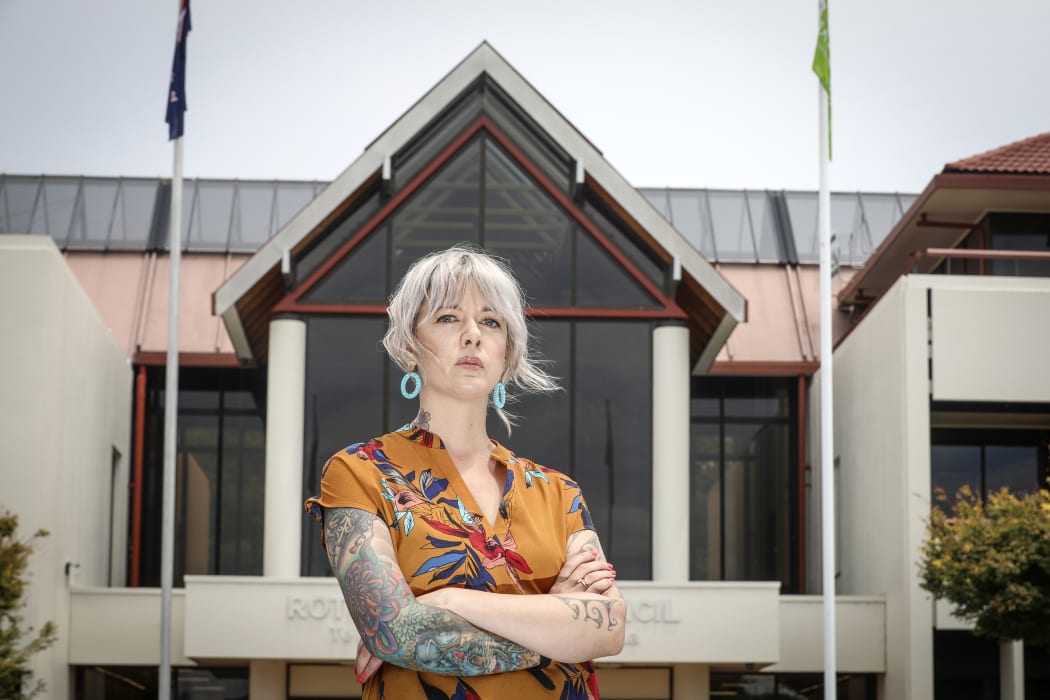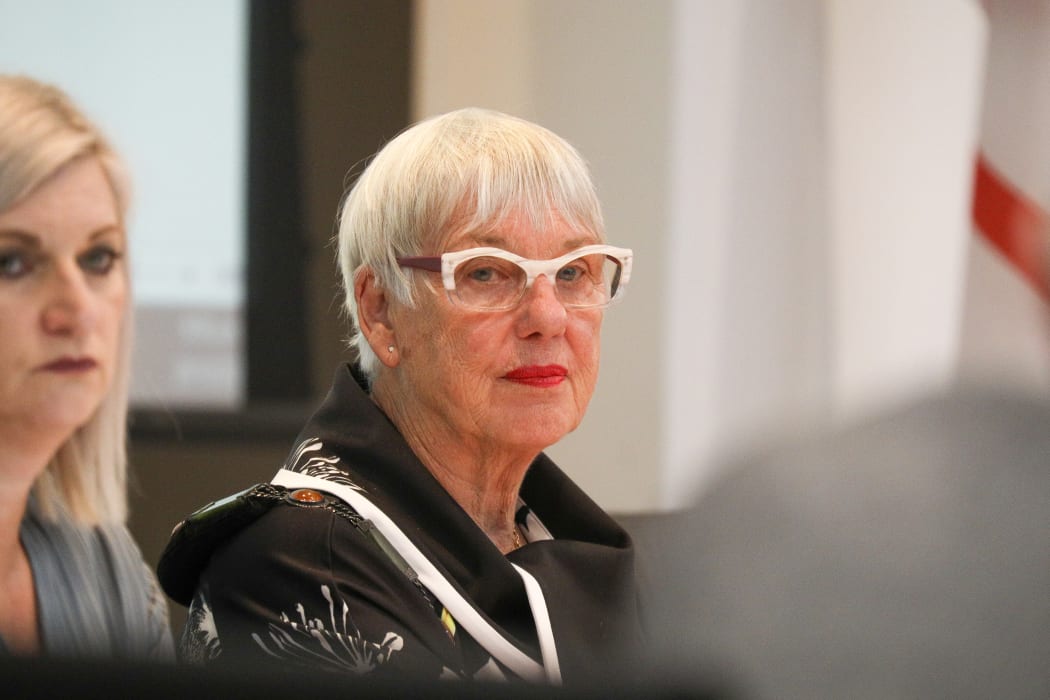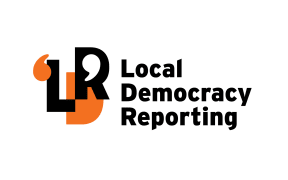A petition calling for urgent council action on city safety and homelessness in Rotorua has garnered more than 1000 signatures in less than a week.

Meredith Herbert has launched a petition calling for urgent action on homelessness and city safety from the council and Steve Chadwick. Photo: LDR / Rotorua Daily Post
Petitioner Meredith Herbert has also invited mayor Steve Chadwick to organise or attend a public forum to hear peoples' experiences first hand.
Chadwick says she understands the frustration around city safety, saying it was "top of mind", but stopped short of committing to a public forum on the issues.
While Visions of a Helping Hand chief executive Tiny Deane said it was a maximum of four rough sleepers who engaged in antisocial or violent behaviour and homeless people were often unfairly blamed for bad behaviour in the city.
Herbert's petition, which asks Rotorua Lakes Council to address the growing concerns of homelessness" in the city, had by Friday afternoon attracted more than 1000 signatures - less than a week since it launched.
In her petition, Herbert stated it was "well overdue" the council, particularly the mayor Steve Chadwick, addressed the "growing concerns that Rotorua residents have for their immediate safety".
In her petition Herbert said the response to homelessness and public safety had been "fairly non-existent and largely ineffective".
"Something needs to be done to ensure we feel safe in our own city."
Speaking to Local Democracy Reporting, Herbert, a registered social worker, said the petition was not about "hating on" homeless people but rather a call for urgent action on public safety.
She said it wasn't only homeless people causing issues, but some contributed and disorder appeared to have increased with an increase of homelessness in the city.
She said people were locking their car doors when driving through the city, long-standing members of the community were moving away, and others went to places like Tauranga or Taupō to shop.
"It's quite scary."
In her view, it seemed Chadwick was "a bit out of touch with reality" on the issue.

Mayor Steve Chadwick. Photo: LDR / Rotorua Daily Post
Herbert said she did not have an answer to all the problems but said it would be "great" if Chadwick organised or attended a public forum on the issues "so that we, as a community, can go there and share our stories with her and ask for her to respond".
She understood addressing homelessness was primarily the role of central government but said local government had a role to play as well.
"As our mayor, [Chadwick] has a responsibility to ensure the people she is looking after in the community are safe."
Speaking to Local Democracy Reporting on Thursday, Chadwick said she understood the "frustration around safety".
"I've heard it growing and feel it myself when I hear stories from across our community about residents feeling unsafe on our streets or fearful business owners locking their doors."
She wanted to assure Rotorua residents and visitors safety was "top of mind" and the city's summer safety campaign had been "bolstered" before Christmas to include daily patrols of the Fenton St / Glenholme areas.
"Rotorua should be among the safest cities in New Zealand to live in and visit. We're not that right now and need to quickly establish a Community Safety Plan that works for us in the short, intermediate and longer term."
She said it was "vital" people reported antisocial or criminal behaviour to the police to be dealt with and "to enable us to build an accurate picture of our problems".
"Not everyone in emergency housing causes trouble and not all the troublemakers are in emergency housing, but those who are causing problems have certainly created an unacceptable situation.
"Rotorua cannot be a dumping ground for other places' homeless and I have been assured by government officials that those seeking emergency housing are not being sent here by them.
"However, as many of us know, we have people in emergency accommodation here who are new to our city and able to secure medium-term housing options through the many businesses advertising nationally for prospective tenants.
"We simply can't tell a motel owner who they can have in their business, but it is extremely frustrating because it adds to our challenges."
She said the rest of the council was also "very aware" of the community's concerns and it was the "major subject" of a Long-term Plan workshop in December.
She said the council was not "sitting idle" waiting for that to happen, however.
"We are working hard, alongside our partners, on multiple fronts - to keep the community safe, get more housing, work with communities, support those in need and encourage economic recovery. We know the urgency.
"This is a complex situation, exacerbated and amplified by Covid and emergency housing, and I can assure the community we have been advocating to the Government and lobbying hard on behalf of Rotorua."
She encouraged locals to share concerns like Herbert's with local MPs.
"We need a better collective effort and the council is doing all that it can, but we can't do it alone."
Asked if she would commit to organising or attending a public forum on homelessness and public safety, Chadwick said she was "happy to discuss petitions directly with the originators and look forward to speaking with [Herbert]".
Rotorua Residents and Ratepayers secretary Paddi Hodgkiss said she supported the petition and had personally experienced similar issues to those described by Herbert, including being "accosted" on the street three times in the space of a month.
"We should try and understand where [homeless] people are coming from but not at the expense of locals … who feel threatened."
She said lobbying the central government would be worthwhile but it had to be more than just meetings.
Visions of a Helping Hand Charitable Trust chief executive Tiny Deane said there were "only about three or four" rough sleepers who engaged in bad behaviour in the city.
He said some of the violence had to do with gangs or intoxication and it sometimes got blamed on rough sleepers.
"It's such a small minority. Is it getting worse? I think it's better now than it was before Covid.
"What we need to do … is educate the residents on how to handle [poor behaviour]."
Hodgkiss said she also supported the idea of a public forum but only as long as potential solutions arose from it.
"Not just to go and talk and vent their spleens which a lot of people would - I'd be hard-pressed not to."
A council spokeswoman indicated various work the council was undertaking relating to community safety, housing and the economy.
The spokeswoman listed safety patrols, CCTV, and safe city guardians among efforts in the area of city safety.
The spokeswoman also listed the Housing and Thriving Communities Strategic Framework, shovel ready funding for infrastructure to support housing, a district plan change for housing at Pukehangi, and the eastside locality plan.
The draft economic strategy framework - which was criticised last year for not including enough about the rural sector - was also aimed at addressing unemployment and inequality in the city.
Lifewise regional manager Haehaetu Barrett was approached for comment.

Local Democracy Reporting is a public interest news service supported by RNZ, the News Publishers' Association and NZ On Air.

